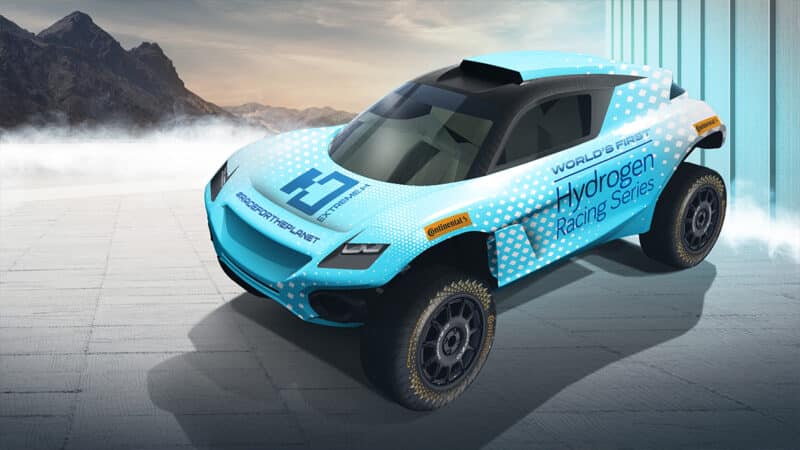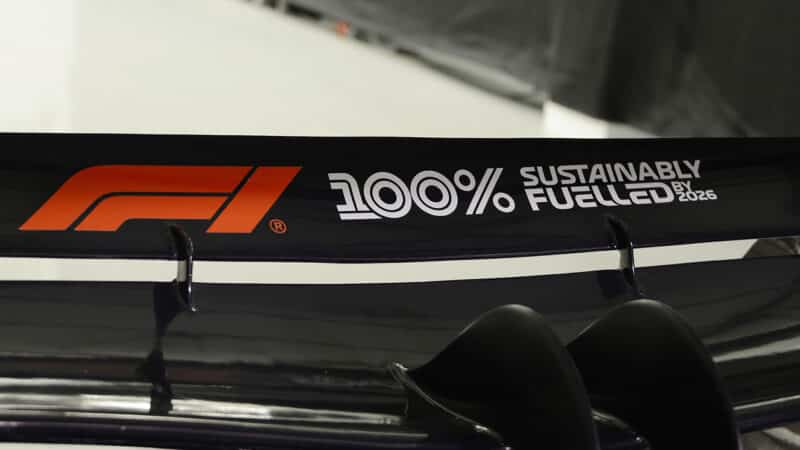Symonds reiterated that hydrogen was an option for the future as part of the working group announcement. “Our sport has a tradition of bringing new technologies to the forefront of public perception in incredibly short timescales,” he said. “With climate change mitigation at the forefront of everyone’s mind we are committed to promoting sustainability and therefore need to explore all areas of decarbonisation of the mobility sector. This must include sustainable liquid hydrocarbon fuels, electrification and hydrogen.”
Several national bans on the sale of new cars that run on oil-based fuels are due to be introduced in the 2030s — Britain has set a date of 2035. This has led to car companies turning their attention almost entirely to greener vehicles: electric cars, as well as alternatives such as hydrogen.
Most oil companies have hydrogen initiatives, including Saudi Arabia state firm and Aston Martin sponsor Aramco; Shell, which sponsors Ferrari and is building Europe’s largest renewable hydrogen plant; Red Bull sponsor ExxonMobil has plans for an even bigger facility in Texas.
However, there’s still a long way to go before hydrogen becomes anything like as viable a fuel as electricity, let alone oil. As with other fuels, obtaining the pure gas is energy intensive and it then needs to be compressed so that a tank gives a realistic range.
That requires pressurised tanks, both for storage and within cars, and a dedicated supply network which, save for a handful of filling stations largely for commercial or research use, doesn’t really exist.

Toyota Corolla raced in Fuji 24Hrs, powered by liquid hydrogen which was kept at -253 degrees Celsius to compress the fuel and save weight
Toyota
That hasn’t prevented companies from heavily investing in the technology; Toyota and Honda have been producing hydrogen fuel cell cars for years, and conventional engines are also being tested.
A hydrogen combustion-engined Toyota Corolla finished this year’s Fuji 24 Hours, and the manufacturer has teamed up with Yamaha to experiment with a hydrogen-powered V8 — perhaps the green energy solution of F1 fans’ dreams.
Hydrogen for transport
Hydrogen-powered racing cars would make headlines, but it looks likely that we’ll see F1 adopting the fuel elsewhere first — and with significantly more impact.
A 2019 study by the series found that only 0.7% of its annual emissions of 226,551 tonnes of carbon dioxide were produced by the cars going around the track, while 45% were down to logistics and another 7.3% was due to the energy needed at each circuit to run the event and for services such as broadcasting.
F1 has committed to reducing all of these emissions to zero and it’s these areas that are mentioned specifically in the working group announcement.
“The objective of the Hydrogen Working Group between Formula 1, the FIA and Extreme H is to monitor the progression and development of hydrogen technology – both for the fuel cells and battery systems which will be used in Extreme H’s first-generation racing chassis – as well as hydrogen technology within race site infrastructure, transportation, charging, storage and management, and its safety implications,” the statement says.

Extreme H car is due to race in 2025
Extreme E
Extreme E’s technical director Mark Grain added: “It’s a ground-breaking initiative and we look forward to collaborating with Formula 1 and Pat [Symonds] both technically and operationally, as we continue to champion new technologies and break boundaries on behalf of motorsport, with hydrogen at the forefront.”
Manufacturers including Volvo, Toyota, Mercedes and IVECO, and already testing hydrogen trucks, while F1’s logistics partner, DHL, is part of HyCET, a European research project that will build fuelling stations and trial hydrogen-powered trucks in real-world use.
At the same time, Airbus and Rolls-Royce are among the companies working on hydrogen-powered jet aircraft; Airbus is aiming to produce its first hydrogen-powered commercial aircraft by 2035.



